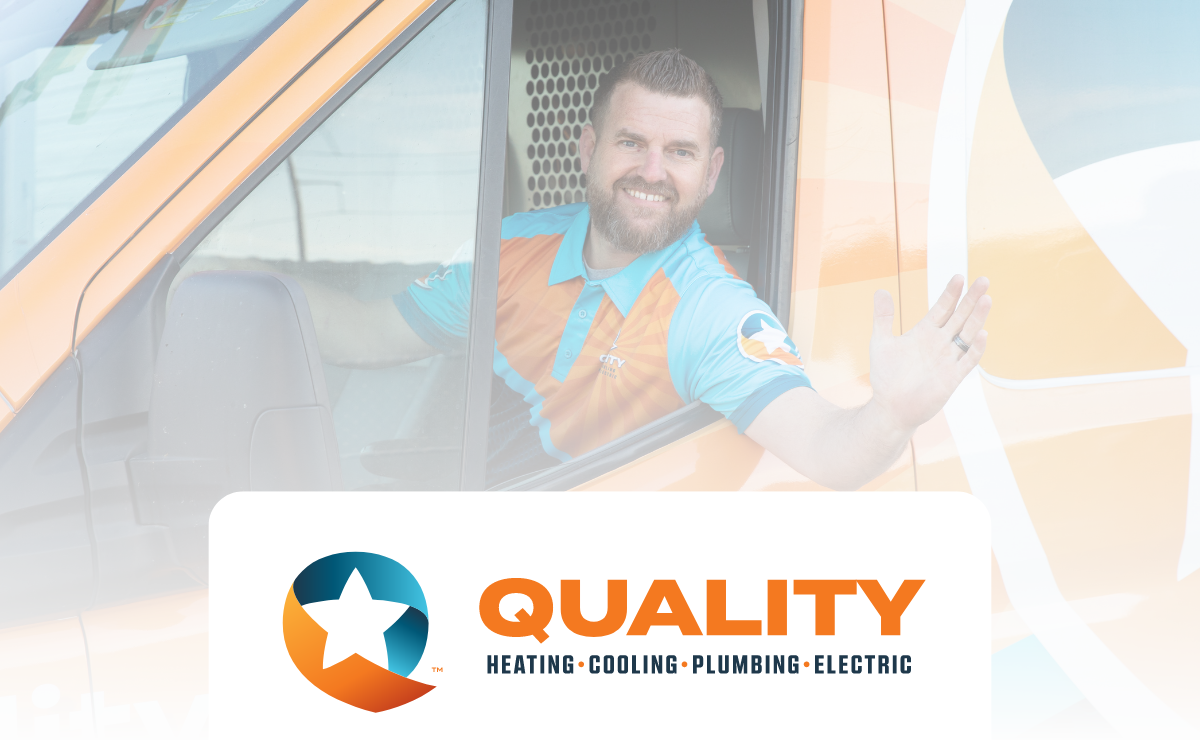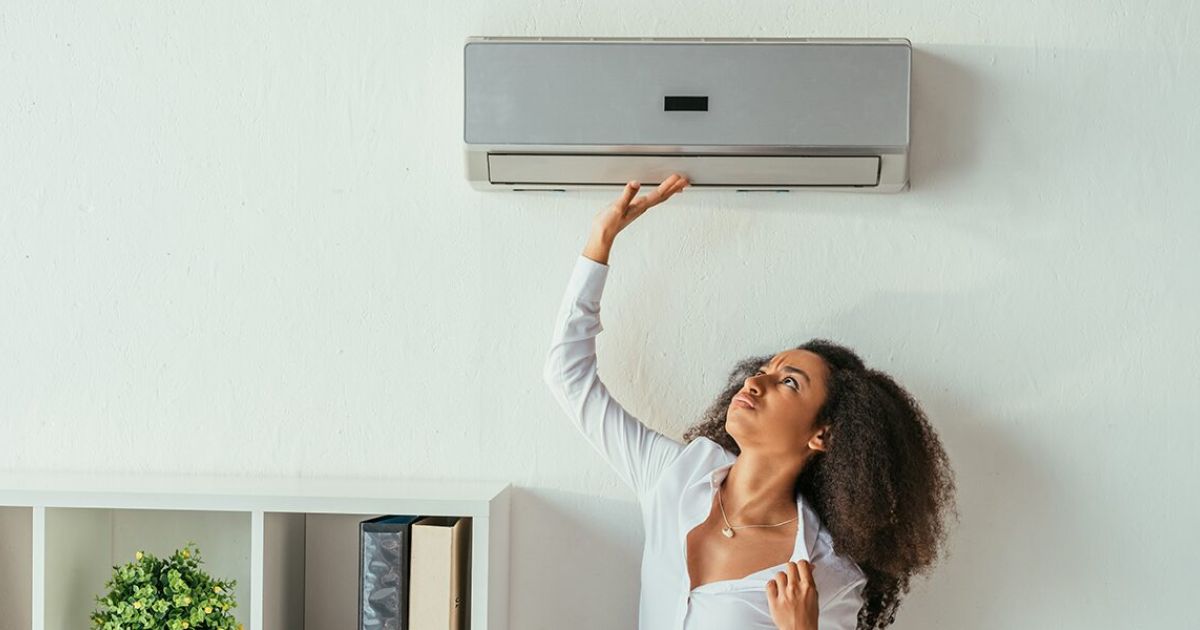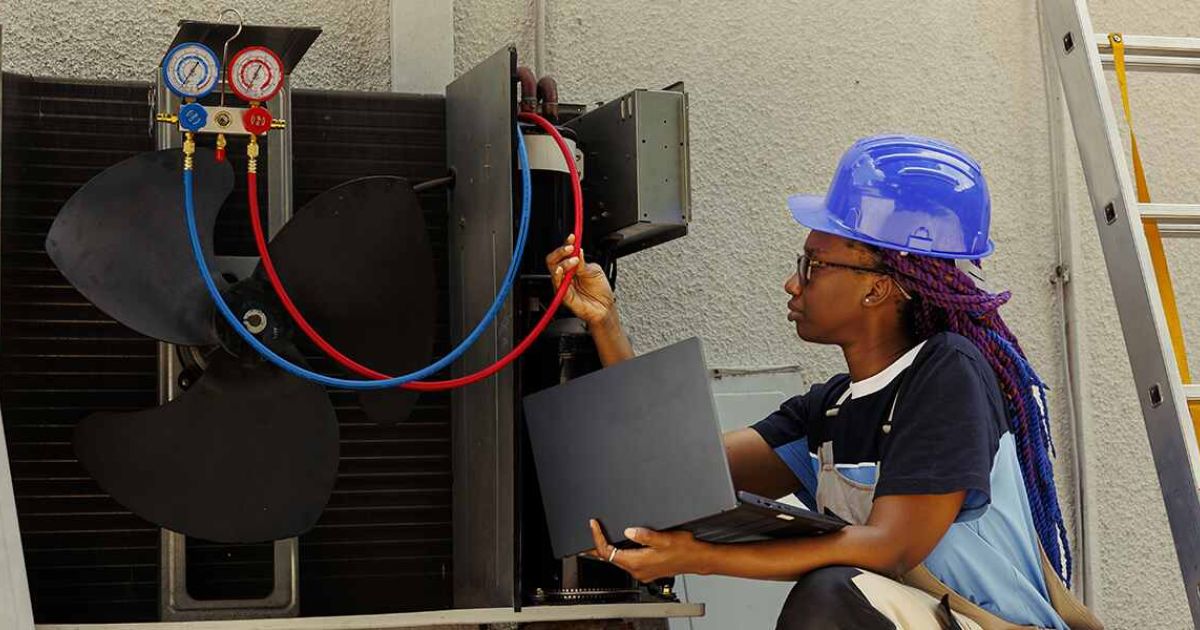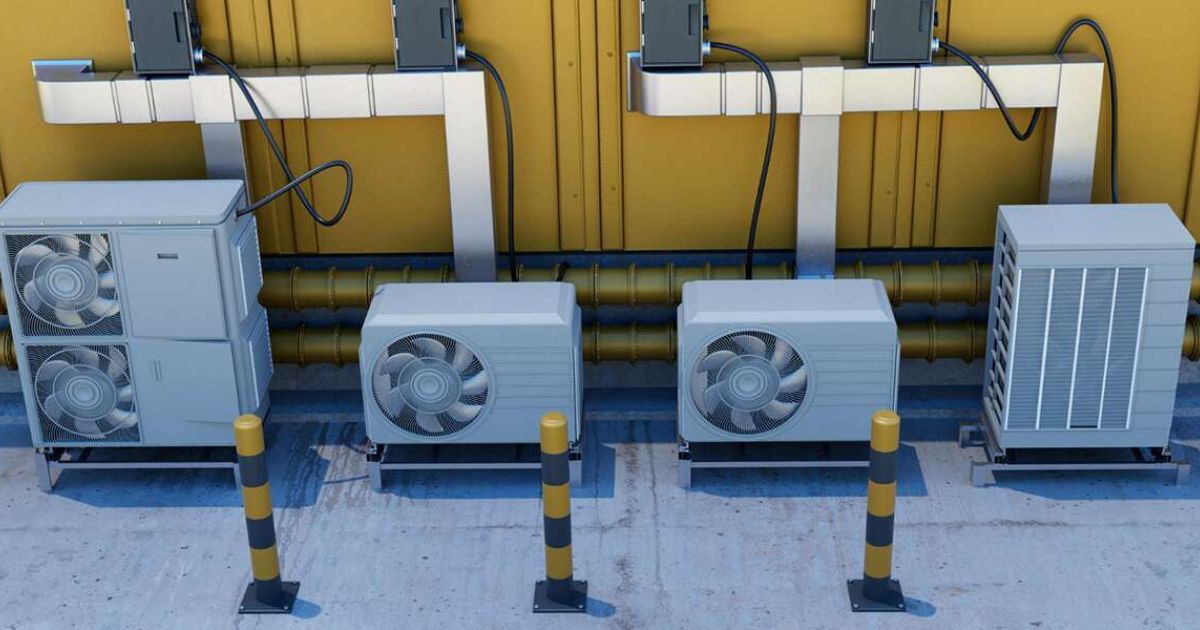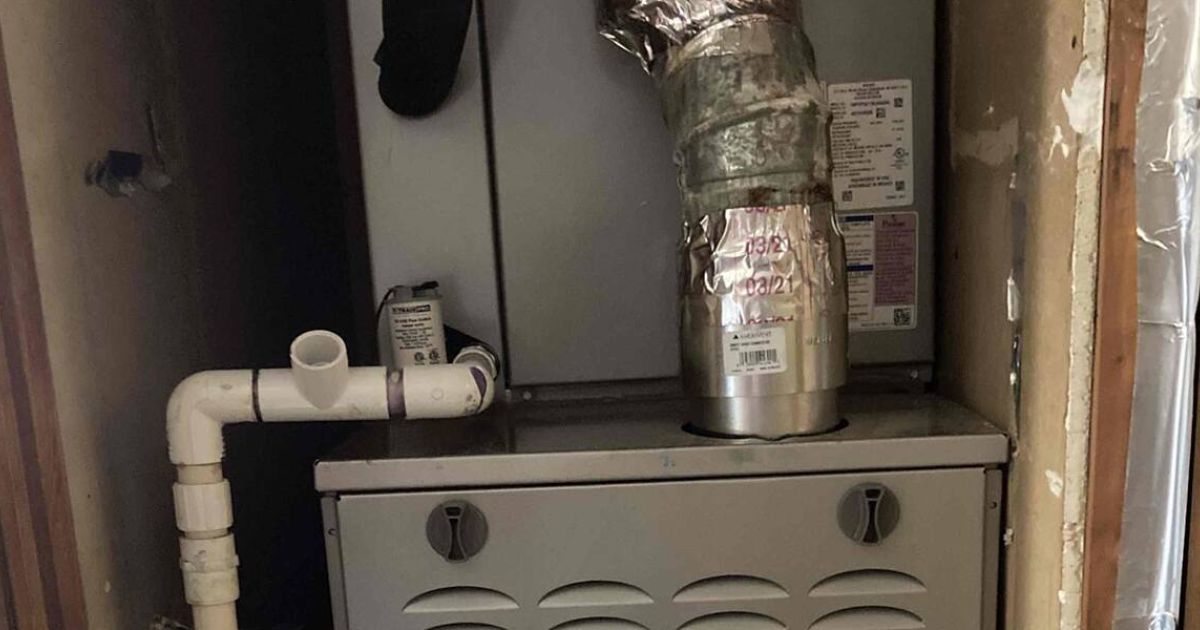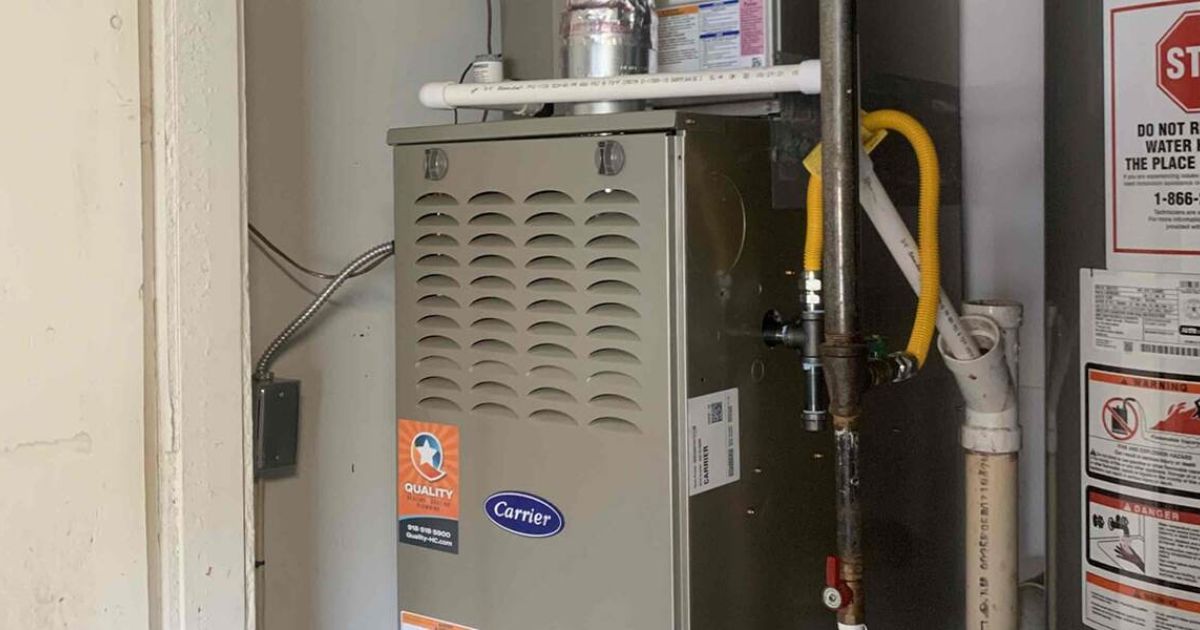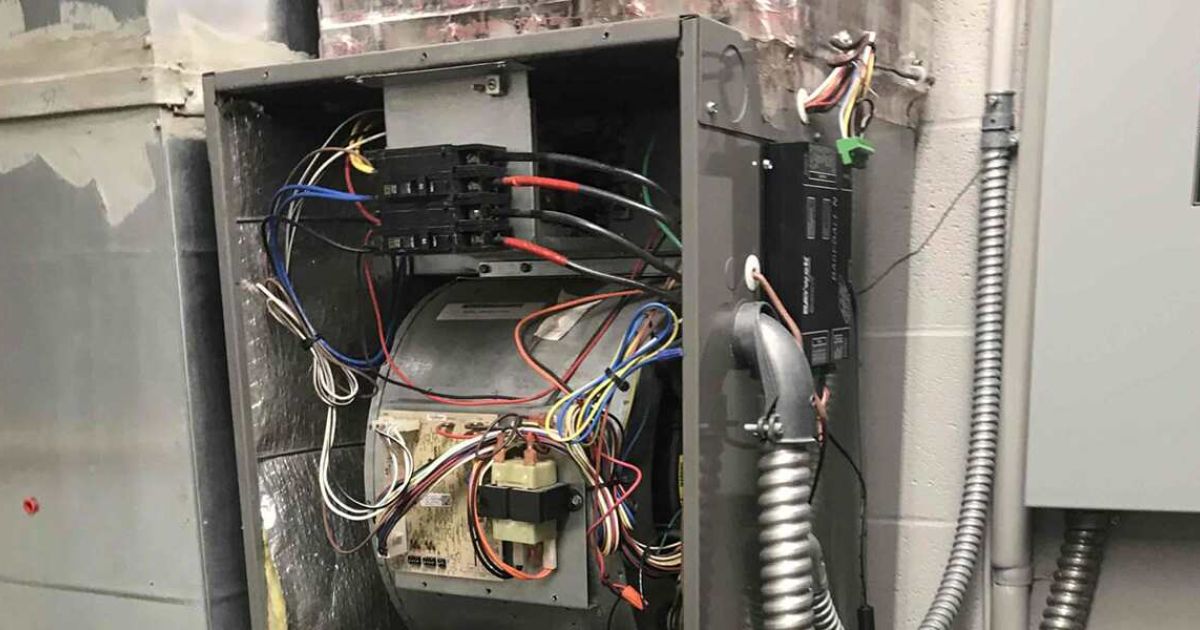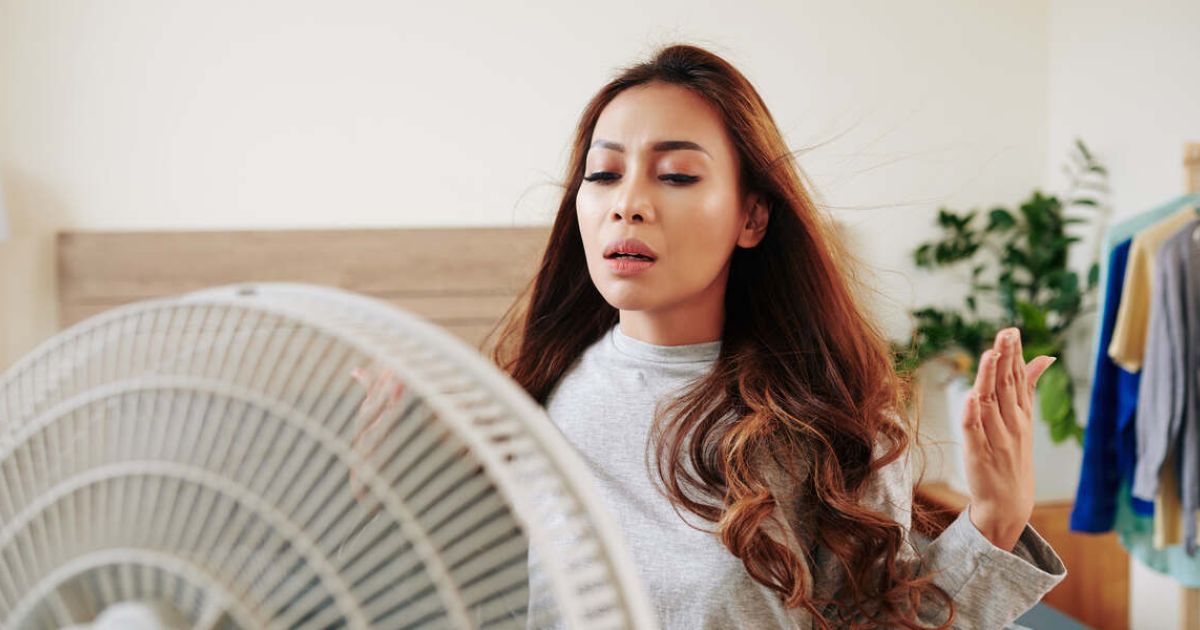
If you’re having trouble with your air conditioner and keeping your home cool, contact Quality Heating, Cooling & Plumbing today for an inspection!
If you feel like your home feels warm and stuffy after turning on the air conditioner, you might ask yourself, “Why is my house still hot with the AC on?” A seemingly faulty AC unit is the last thing anyone wants to deal with when they expect to have relief indoors from Oaklahoma’s high summer temperatures. So, what causes the problem?
As Tulsa’s trusted AC installation company, Quality Heating, Cooling & Plumbing understands the frustrations that come with an HVAC system with poor performance. Though our HVAC professionals can pinpoint the precise reasons why your specific air conditioner isn’t cooling your property properly, you might be experiencing one of these common issues.

1. Lack of Shade Around the Property
The answer to the question, “Why is my house still hot with the AC on?” doesn’t always involve the HVAC system. Sometimes the heat coming into a house is too much for the air conditioner to handle.
For instance, if your residence is in a location without many trees or exterior and interior shading, like window awnings and blinds, sunlight will have an unobstructed line to your windows on the south side of your house. When the sun’s rays hit windows without shade, it can increase the temperatures inside those rooms. Your air conditioner might be working double time to account for the temperature increases during the sunniest times of the day.
The best way to address this issue is to ensure your property has adequate shading. Planting trees strategically on the south side of your property to shield your windows will help prevent your AC system from overworking, and the shade will keep your home cooler. If planting trees isn’t an option, consider using window blinds, drapes, or tinted films to block some of the sun’s light.
2. Poor Home Insulation
Another home-based problem that can leave your house feeling hot and stuffy with the air conditioner running is insufficient insulation. Insulation is necessary for blocking indoor and outdoor air transfers regardless of the season. If your home has old insulation, no insulation, or improperly installed insulation, air leaks from your attic and roof could be responsible for the loss of precious chilled air in the summer.
Consider contacting an insulation specialist to assess your home’s insulation needs. It may be time to remove old insulation from your walls and attic to properly install new materials. With the right insulation, your house will be more comfortable and energy-efficient.
3. Incorrect Air Conditioner Size
A large air conditioner doesn’t always equate to more power and efficiency, nor will a smaller unit produce more savings by consuming less energy. It’s imperative to install an appropriately sized AC because a small system won’t have the power to keep up with your temperature settings on the thermostat. The heat will be too much.
Most people experience this problem if they DIY an AC installation without taking the system’s size and abilities into account. It’s also possible to have an appropriately-sized AC system that becomes too small for the property if the homeowners build another room or screened porch for the home.
4. Air Leaks From Ductwork
Central air conditioning units rely on air ducts to transport chilled air throughout the house. Even if your AC is fully functional, you might notice a drop in system performance if the ducts leak chilled air due to gaps or tears in their seams.
If your home can’t cool off quickly, you might adjust the thermostat, which forces your AC to overwork. Still, if no one locates and repairs the leaks, the problem will remain, and you’ll also have to deal with the risk of premature wear on your HVAC system.
5. Air Drafts
Walls and attics without sufficient insulation aren’t the only ways your home can leak air. Adequate air sealing around your windows and doors is vital for preventing unwanted air transfers between your house and the outdoors.
Drafty windows and doors could have major gaps or many tiny cracks that allow air to move back and forth. Proper weatherization will prevent this issue and ensure your indoor comfort throughout the year.
6. Blocked Vents
A simple explanation that can answer the, “Why is my house still hot with the AC on?” question is “blocked vents.” Sometimes people close vents under the assumption that they can cool commonly-used spaces more quickly by shutting the vents in mostly unused rooms.
Unfortunately, intentionally or unintentionally blocking air vents can cause the AC’s blower to work excessively to shift the air toward open vents. This creates an inefficiency that increases the pressure within the ductwork, forcing the blower to work slower. The result is a hotter house because it will take longer to cool things down.
7. Refrigerant Leaks
Refrigerant is a vital component of air conditioners because the chemical facilitates the heat transfer process that removes warmth and moisture from indoor air, making spaces cooler. Refrigerant moves on a closed circuit between the condenser unit and the air handler. However, if the lines develop a leak, you’ll lose refrigerant and the ability to properly conduct a heat transfer.
Refrigerant leaks are serious problems. Exposure to the chemical can cause several health problems, like:
- Dizziness
- Loss of concentration
- Skin irritation
- Irregular heartbeats
If you suspect a refrigerant leak is responsible for your house staying warm with the air conditioner running, contact an HVAC professional immediately for help.
8. Filthy Air Filter
Air filters are another essential component of an AC system, but many people overlook them. The filters are screens that trap airborne debris as the cooling unit cycles air throughout the house, such as:
- Dust
- Dust mites
- Pollen
- Volatile organic compounds or VOCs
- Pet dander
When you don’t clean or replace the filters regularly, they will clog with debris. The filthy screen will restrict airflow, which will force the AC system to work harder. In some cases, the debris will shed onto the cooling unit’s interior components, like the evaporator coil, and affect their performance.
The ideal schedule for changing AC air filters is once every 90 days, or once every season. Still, people with respiratory illnesses or pets may need to change the filters every 30 days to maintain good indoor air quality.
9. Dirty or Blocked Condenser Unit
Dirty condenser units are another potential problem. The condenser unit is the AC equipment outside of your house that’s responsible for dispersing indoor heat to the outside air. Proper airflow is essential for the condenser unit’s functionality.
Ideally, the condenser unit should have at least two feet of clear space on all sides to prevent air blockages. Still, plants, grass, debris, and other materials can block air and dirty the system’s interior components. After clearing space around the equipment, contact an HVAC company to clean the unit.
Improve Your AC System Today With the Help of Tulsa’s Top HVAC Company
It can be difficult answering, “Why is my house still hot with the AC on?” if you don’t seek a professional HVAC inspection from experienced professionals. At Quality Heating, Cooling & Plumbing, we can ensure your home maintains the ideal temperature in summer to beat Tulsa, OK’s, sweltering heat through our comprehensive HVAC services.
From thorough AC inspections to air conditioner repairs and replacements, our locally-operated, privately-owned company does it all. Our skilled technicians work hard to produce optimal results. Request an appointment with Quality Heating, Cooling & Plumbing today by calling (918) 262-5245.

Cassie Pound is the Vice President of Quality Heating, Cooling, Plumbing & Electric with locations in Tulsa, Glenpool, and Bartlesville, Oklahoma.

